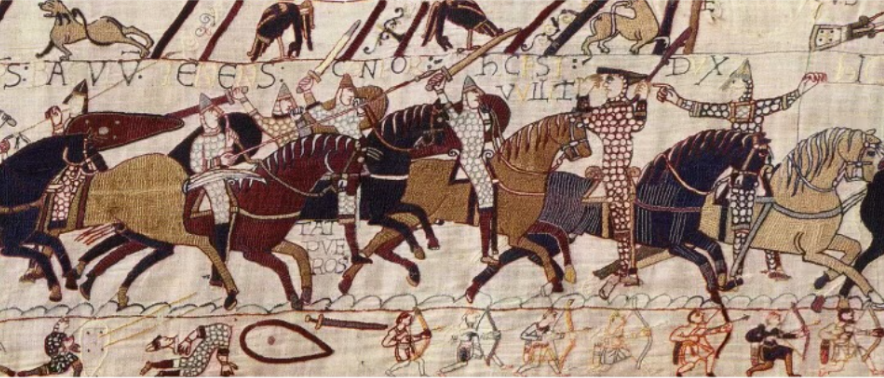In the English-speaking world, we know the third aspect of the Holy Trinity as “the Holy Spirit.” But a German speaker would know this oh-so-holy entity as “der heilige Geist.” Because of the translation of “Holy Spirit” as “heilige Geist,” one might be surprised to find out that “Geist” also translates to the English word “mind.” But how can this be? The importance of understanding words’ meaning in their original language cannot be understated, especially when trying to understand how words and concepts were understood in their original context. So when a German hears “heilige Geist,” it not only conjures imagery of a spirit, as it does for English speakers, but also of the mind, of thought, of a driving individual force and being.
What about the Holy Spirit in its original language? The New Testament was written in an ancient dialect of Greek known as “Koine Greek,” a common tongue formulated among the armies of Alexander the Great during the 4th Century B.C.E, and continued in popular use into the Middle Ages. When transcribing the concept of the Holy Spirit into the New Testament, the Koine Greek authors used the term hagios pneuma. Hagios of course means holy, but pneuma proves more difficult to translate.
Pneuma can be translated as something close to “wind” or “breath.” The Holy Wind? The Greeks understood the Holy Spirit as a literal air-like substance. For example, when the Old Testament was first translated into Koine Greek (c. 3rd-1st Century B.C.E), the authors of the Septuagint (The Koine Greek Old Testament) used the word pneuma to describe the breath God blew into Adam to give him life. Pneuma also carries a heavy philosophical connotation, as it was debated by some of the most famous Greek philosophers. Words carry with them the baggage of all of their prior usage in its language. Thus when seeking to understand certain words and concepts, it’s important to understand this baggage, history, and etymology.
Analyzing differences in etymology even if two words supposedly directly translate to each other is another fascinating experience. For example, we often take for granted the origin of the word imagination, as simply a form of the Latin word imago, or image. For one who speaks Latin, or a language descended from Latin, when one “imagines” they are “imaging,” with the emphasis placed on visualization and the images one sees while imagining. Compare this to the German word for “imagination,” Vorstellung. Stell means roughly put, and vor means before. So, Vorstellung is essentially what one “places before them.” When a German tells somebody to “imagine something,” they’re saying, “Put this before you.” Even the use of the same words with different definitions in different contexts is interesting to observe. For example, the German word for empire is infamously reich, but reich also means rich. A similar trend of association of land with wealth can be seen in the English word “commonwealth.” Additionally, the understanding of one’s own country can be affected by the word for country. In languages like Aramaic (eraqa) and German (Land), the word for “country” is the same for land, which potentially places a higher cognitive emphasis on the physical land of a country. The word country comes from the Latin “contrata + terra” or “opposing + land,” which helps show how post-Roman countries viewed other nations.
Words and choice of words are also inevitably tied to history, not just cultural history, but political history as well. English is infamous for being made up of Germanic, Latin, and Greek elements. But why is this? Before 1066, England was a kingdom made up of Anglo-Saxons, a Germanic tribe hired as mercenaries to protect the native (now-Romanized) Celtic Britons, who had migrated there after the fall of the Roman Empire. The Anglo-Saxons would eventually replace the native Celts, who would be pushed back into what is now modern-day Wales. The Germanic-speaking Anglo-Saxons would inhabit and cultivate England (whose name is derived from Anglo-Saxon) for the next 500 years, until 1066. In that year, William the Conqueror, Duke of a province in Northern France called Normandy, would invade England and take the English crown after a succession crisis. Not only would his invasion “Frenchify” the political and legal systems of England but more importantly the language. The new Norman nobles of England spoke French, and as such, the “upper-class language” became French, whereas everyday common words were typically of Anglo-Saxon origin. For example, an Anglo-Saxon peasant might raise and slaughter a pig, sheep, and cow, but when these animals are prepared as dishes for Norman French nobles, they become pork, mutton, and beef. A Norman noble might “enter a chamber” but an Anglo-Saxon peasant might “come into a room.” Anglo-Saxons might have a job like a miller or shoemaker but a Norman might have a job of a higher trade like a tailor or merchant. Words we think of as “fancier” that have to do with “more complex” aspects of society are typically of Norman French origin, whereas more habitual words are typically Anglo-Saxon.
Thus, language can shape the many associations we can have with a word or concept, as well as tell us a story of how certain words and meanings were conjured. Learning different languages is not only useful for communication but also for changing our perspective on how we understand schemas and conventions we previously understood through a first-language lens.
Sources: Norman Conquest, Richard Huscroft
David Furley, From Aristotle to Augustine, History of Philosophy
Colin MacCabe, Keywords for Today, A 21st Century Vocabulary







